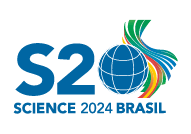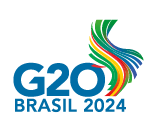The opportunity for Brazil to make a difference in the world
March 6th | O Globo
The new article by the president of ABC, Helena Nader, for O Globo draws attention to the S20 meeting – the group of G20 science academies – which will take place on March 11th and 12th in Rio de Janeiro.
By undertaking the mission of hosting the G20, Brazil reinforces its role as an influencer and mediator in the quest to address global issues. It is quite valuable for a country that, just a few years ago, faced speeches of mistrust in science and democracy. Now, it reemerges as a leader in debates that place science at the forefront in the search for solutions to urgent issues.
This is the case with artificial intelligence. Subject to recent advances, this type of technology has been seen as a bet capable of accelerating scientific research and transforming the economies of countries — but at the same time, it requires measures to try to avoid ethical dilemmas and other conflicts.
The same applies to bioeconomy and energy transition. Although they represent urgent demands in the face of the impact of climate change, these are not transformations easily accepted and incorporated by all countries, which reinforces the need to drive debates on benefits, social and economic impacts, and alternatives based on regional differences.
Health challenges are another point of concern. After experiencing a Covid-19 pandemic, countries are still dealing with the impacts of the disease along with other concerns, such as the need to regain control over other communicable diseases and structure measures to support mental health.
We also have population aging, which leads to the need for greater investment in specialized healthcare policies in countries experiencing this scenario. In others, the increase in the younger population puts greater pressure on basic healthcare policies, education, and employment.
Countries in demographic transition also face new demands regarding poverty reduction and adjustments in the economy. The pursuit of social justice through inclusive actions also fits into this context.
Attention to these aspects, in short, is crucial for the G20 countries to make informed decisions according to societal needs.
With these themes on the agenda, the Brazilian Academy of Sciences will preside over the 8th edition of the Science20. The G20 engagement group focused on science and technology will discuss these critical issues for countries and, based on that, formulate recommendations for the heads of government and state participating in the Leaders’ Summit in November.
The S20 meeting brings several milestones. In addition to taking place for the first time in Brazil, with the presence of representatives from the science academies of the G20 countries, the meeting is expected to provide a unique space for other international scientific networks and organizations. This includes the World Academy of Sciences, the InterAcademy Partnership, the International Science Council, the Network of African Science Academies, among others.
This is a way to unite forces in science and vocalize decisions that truly have global reach — a strategy consistent with the theme “Science for Global Transformation” chosen for the meeting.
In a preliminary document sent to the science academies, we emphasized the importance of including all these topics in the discussions. The proposal, therefore, is to draw attention to new urgent demands together with old challenges and to consider regional characteristics.
At the S20, Brazil has the opportunity to lead discussions that can make a difference in the world. It is our chance to mobilize the scientific community in pursuit of transformations not only for the G20 countries but for the entire planet.
*Helena Nader is the president of the Brazilian Academy of Sciences and emeritus professor at the Paulista School of Medicine of Unifesp.




